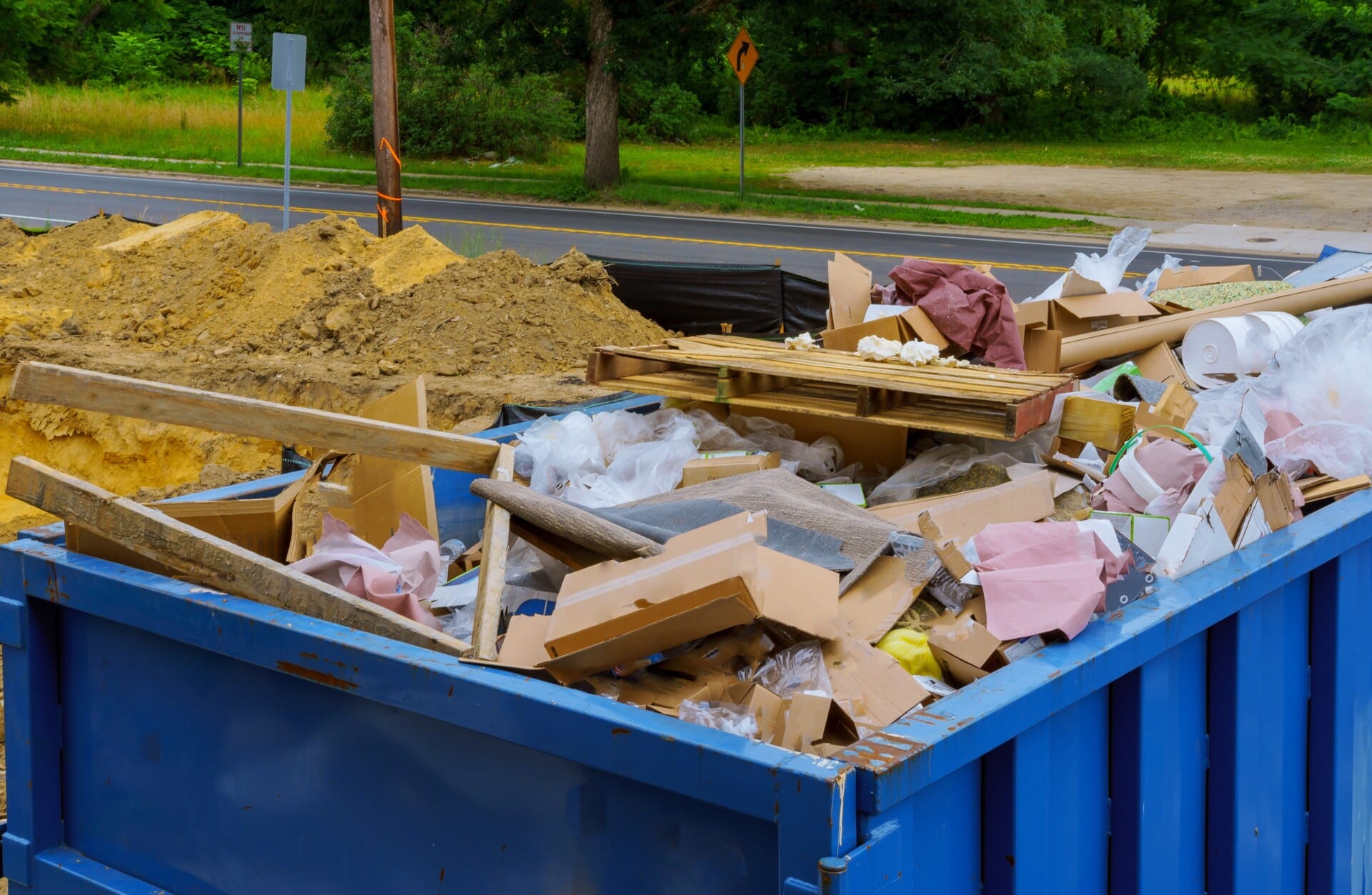
When considering dumpster rentals, it’s essential to understand that not all items can be disposed of in a dumpster. Many materials are restricted due to environmental concerns, safety risks, or legal requirements. Improper disposal of prohibited items can lead to contamination of the environment, dangerous chemical reactions, or even significant legal consequences. For example, hazardous materials like paints, batteries, and electronics require special handling and should never be tossed in a dumpster.
Similarly, large appliances, medical waste, and certain chemicals can pose serious health and safety risks if disposed of improperly. To avoid any issues, always check with your dumpster rental provider for a list of prohibited items specific to your location and follow all guidelines to ensure compliance with local regulations.
Paints and Solvents Should Never Be Tossed
Paints, particularly oil-based paints, and solvents are dangerous materials to dispose of improperly. These substances contain chemicals that can leach into the soil and water, contaminating the environment. Such chemicals can also present health risks if inhaled or ingested. Disposing of them in a dumpster not only harms the environment but is also illegal in many areas due to their toxic nature.
Many communities have special programs for hazardous waste disposal, where you can drop off these materials for proper recycling or disposal. Local waste management services often partner with facilities that accept these hazardous items, ensuring they are disposed of safely. Additionally, some areas hold annual hazardous waste collection events to help residents safely get rid of unwanted chemicals, including paint and solvents.
Batteries and Electronics Require Special Handling
Batteries and electronics are filled with dangerous materials like mercury, lead, and cadmium. These substances pose significant environmental and health risks if thrown into landfills. For example, when batteries leak, they release toxic metals into the environment, potentially contaminating soil and groundwater. Similarly, old electronics like computers, TVs, and phones contain a variety of hazardous components that can have long-lasting negative effects on ecosystems.
Thankfully, most cities offer electronic waste (e-waste) recycling programs to safely dispose of these items. You can find e-waste recycling centers or drop-off points through local municipal websites or retail stores. Many retailers even offer discounts or incentives for recycling your old electronics. By taking advantage of these services, you ensure that harmful substances are handled properly, and valuable materials such as metals and plastics are recycled, reducing the environmental impact.
Tires Are Not Meant for Dumpsters
Tires are one of the most commonly banned items from dumpsters, and for good reason. When discarded in landfills, tires don’t break down like other materials. Instead, they trap gases that can lead to dangerous conditions like fires, explosions, or the creation of tire fires that can burn for months. Additionally, tires can float to the surface of landfills, disrupting the landfill’s operation and causing significant damage to equipment.
Due to these issues, many jurisdictions have specific rules that prohibit tires from being thrown away in regular dumpsters. To dispose of old tires properly, most auto shops and tire dealers will accept them for recycling or disposal. Some communities also have designated tire recycling centers. These centers often repurpose old tires into useful products such as rubberized asphalt or playground surfaces.

Appliances Containing Freon Must Be Handled Separately
Appliances like refrigerators, air conditioners, and freezers often contain Freon, a refrigerant that is harmful to the ozone layer. When improperly disposed of, Freon can leak into the atmosphere, exacerbating environmental issues and contributing to the depletion of the ozone layer. As a result, these types of appliances must be handled with special care and must undergo proper Freon removal before disposal.
Many local waste management companies or appliance retailers offer Freon recovery services, where certified technicians extract the harmful refrigerant in a controlled, environmentally friendly way. Once Freon is removed, the appliance can be safely recycled or disposed of. It’s essential to never place these types of appliances in a dumpster, as they can be subject to fines or other penalties for improper disposal. Always check with your rental provider or local waste management service to ensure compliance with these environmental regulations.
Propane Tanks and Flammable Materials Are Dangerous
Propane tanks, gasoline containers, and other flammable materials pose a serious risk when disposed of improperly. If placed in dumpsters, these items can create dangerous situations such as fires or explosions during transit or at a disposal site. Propane tanks, in particular, can be especially hazardous if not emptied and disposed of correctly. Because these materials are highly combustible, it’s crucial to follow safety procedures when getting rid of them.
Most areas offer specialized disposal programs for hazardous materials, where propane tanks and other flammable substances can be safely disposed of. Some local fire departments or recycling centers also accept propane tanks for proper disposal. Always ensure that these items are empty before dropping them off, and follow any guidelines to avoid accidents. Responsible disposal of flammable materials not only keeps the community safe but also reduces the risk of environmental damage.
Medical Waste Requires Specialized Disposal
Medical waste, including sharps, contaminated materials, and expired medications, cannot be disposed of in regular dumpsters due to the risks it poses to public health. Items like needles, bandages, and medications can carry infections or diseases, endangering sanitation workers and the public. Improper disposal of medical waste can lead to contamination of landfills and other waste systems, potentially exposing others to harmful pathogens. Fortunately, many localities have established programs for the proper disposal of medical waste.
Pharmacies, clinics, and hospitals often provide drop-off points for expired medications. For sharps, such as needles or syringes, special disposal containers are available at health centers or through mail-back programs. Always follow local regulations and use these services to safely discard medical items. By doing so, you protect both the health of individuals and the integrity of waste management systems, preventing the spread of diseases and contamination.
Asbestos-Containing Materials Are Hazardous
Asbestos is a dangerous substance that can cause severe health issues, including lung cancer and mesothelioma, when its fibers are inhaled. Found in older buildings, particularly in insulation, roofing, and flooring materials, asbestos is a known carcinogen. Because of the health risks associated with asbestos, the disposal of materials containing it is highly regulated. When disturbed, asbestos can release microscopic fibers into the air, which are then inhaled, causing long-term health problems.
For this reason, asbestos-containing materials must never be placed in dumpsters. Instead, professional abatement services should handle the removal of these materials. These experts follow strict safety protocols, including wearing protective equipment and sealing materials in specially designed bags to prevent contamination. If you suspect a material contains asbestos, contact certified professionals who can conduct an inspection and ensure its safe removal.
Large Amounts of Yard Waste May Be Restricted
Yard waste, including grass clippings, leaves, and branches, is generally considered organic waste, but it can still pose disposal challenges when it’s accumulated in large quantities. While small amounts of yard waste may be accepted by regular dumpsters, larger amounts may require special handling. Large yard waste can be heavy, difficult to manage, and may not decompose properly in landfills, leading to odor problems and inefficient space use.
Many communities have dedicated yard waste recycling programs where you can drop off large quantities of leaves, branches, and other organic materials. These facilities often compost the materials or use them for mulch, benefiting both the environment and your local ecosystem. By taking advantage of these services, you help reduce the strain on landfills and contribute to sustainability efforts.
Liquids and Wet Materials Are Often Prohibited
Liquids, such as oils, paints, and certain cleaning agents, can cause a range of problems when disposed of in dumpsters. These substances can leak out, causing contamination of other materials in the dumpster and even the surrounding environment. Additionally, wet materials can cause damage to the dumpster itself, creating hazardous conditions or making it harder for waste management workers to handle the load.
Dumpsters are designed for dry materials, and liquids can easily seep out, potentially reaching groundwater sources or causing pollution. Always consult with your dumpster rental provider to understand their guidelines regarding liquids. Many waste management companies offer alternative disposal options for liquids, such as specific drop-off points for hazardous waste or liquid disposal facilities.
Hazardous Chemicals Must Be Disposed of Properly
Chemicals such as pesticides, industrial cleaners, and fertilizers are toxic and can have harmful effects on the environment if not disposed of properly. When these substances enter the waste stream, they can contaminate water supplies, harm wildlife, and even pose risks to human health. It’s essential that hazardous chemicals are disposed of in accordance with local regulations.
In many areas, hazardous waste programs are available to safely collect and dispose of chemicals, ensuring they don’t end up in landfills where they can leak or spill. Many local recycling centers also accept certain hazardous chemicals for safe disposal. Before getting rid of any chemical products, always read the label for specific disposal instructions and contact your local waste management provider for guidance.
Conclusion
Proper waste disposal plays a crucial role in preserving the environment, public health, and safety. In many cases, improper disposal of waste can lead to serious environmental damage, contamination of natural resources, and potential harm to local wildlife. This is especially true for hazardous materials like chemicals, appliances containing Freon, or medical waste, which require specialized handling and disposal methods. In addition to environmental risks, failing to follow local regulations can result in costly fines or legal consequences.
By being informed about the proper disposal methods and adhering to local rules, you can contribute to a cleaner, safer community. For Chicago residents, 606 Junk Removal and Dumpster Rental offers professional services to help with responsible waste disposal. Their team ensures that all items are disposed of in a manner that meets environmental standards and legal requirements. For assistance, reach out to them at 773-412-4902 or email info@606junk.com.
